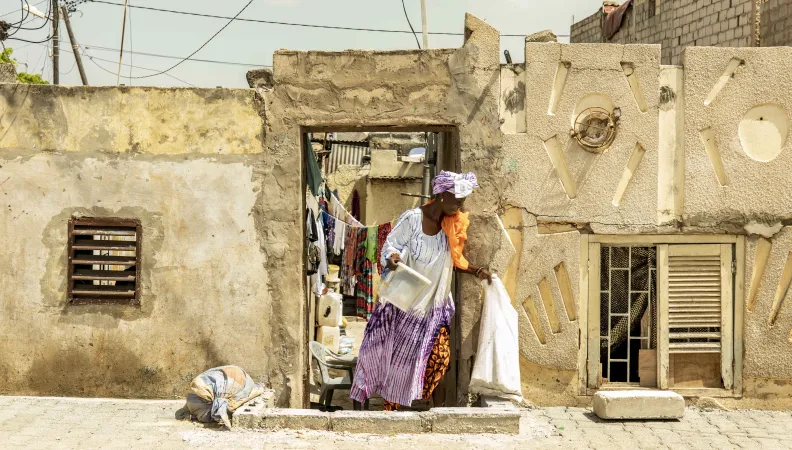Share the page
Sustainable homes for populations excluded from the social housing market (PHARD)
Project


-
Project start date
-
Status
In progress
-
Estimated date of project termination
-
-
Project financing date
-
-
Financing duration
-
2,5 years
-
Type of program
-
FFEM
-
Global financing amount
-
€ 3200000
-
FFEM financing amount
-
€ 1400000
-
Project lead member institution(s)
-
French Ministry of the Ecological Transition
-
Country and region
-
Senegal
-
Type of financing
-
Partners
-
Beneficiaries
-
Architecture & Développement
-
Type of beneficiary
-
NGO, Foundation
With burgeoning demographic growth, Senegal has a shortage of homes for the most vulnerable households. The PHARD project – supported by the FFEM – aims to facilitate their access to affordable, resilient and sustainable homes through an innovative property production model.
Context
With a burgeoning population and fragile development, Senegal is suffering from a lack of decent housing and this is undermining the social, economic and environmental balance. Providing housing fit for purpose is therefore a central issue for the country’s urban planning.
The project, supported by the FFEM, therefore hopes to facilitate access to affordable, resilient and sustainable homes for populations excluded from the social housing market. To achieve this, it aims to develop an improved, competitive and local social housing offer to enhance social mobility. An alternative model for the delivery of homes with high environmental added value to improve urban and semi-urban areas.
Description
The project has 4 components:
- Undertake a study of alternative solutions for the development of affordable homes and testing the pre-feasibility of an eco-construction industry.
- Experimente with innovative construction solutions to deliver resilient and sustainable homes through applied research on biosourced materials and their prefabrication, together with the construction of two experimental platforms.
- Constructe a demonstration programme of an eco-estate comprising 50 homes and 10 raised homes.
- Capitalise and communicate the results in order to roll-out this alternative property access model at national scale.
Outcomes
- Setting-up an accessible housing scheme for households earning less than 350,000 CFA francs per month (approx. €536)
- Develope a social housing development model acceptable to everyone, that is replicable and transferable.
- Create jobs through the preparation of production industries for the alternative components and construction materials.
- Adopte construction practices with low environmental impact and high energy efficiency (bioclimatic constructions)
- Deliver of an “urban regeneration” project with a sustainable and inclusive agenda.
Innovative and exemplary features
The project supported by the FFEM is innovative in several ways. From a financial perspective, it seeks to reduce costs on every tool available. Institutionally, the creation of new structures or mechanisms for property transactions (collective interest cooperatives, community land trusts etc.) which bring together the actors and users sponsoring the project is a particularly novel component. In addition, this programme includes materials that are low-carbon, biosourced, recycled, and re-used.
The set-up is equally innovative as it establishes a generic transaction that is modular, evolutionary and incremental, benefits from the active involvement of users, and is compatible with the current regulatory framework.


